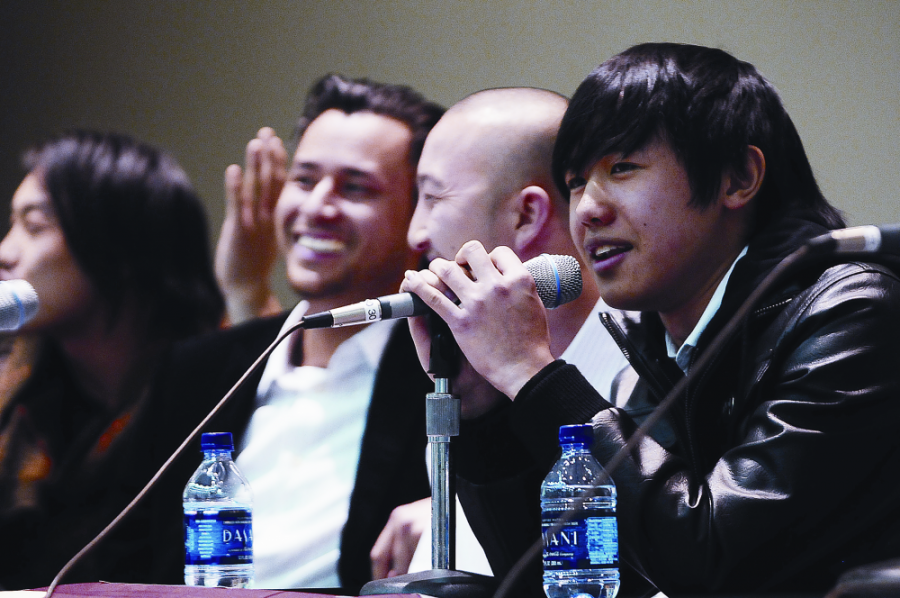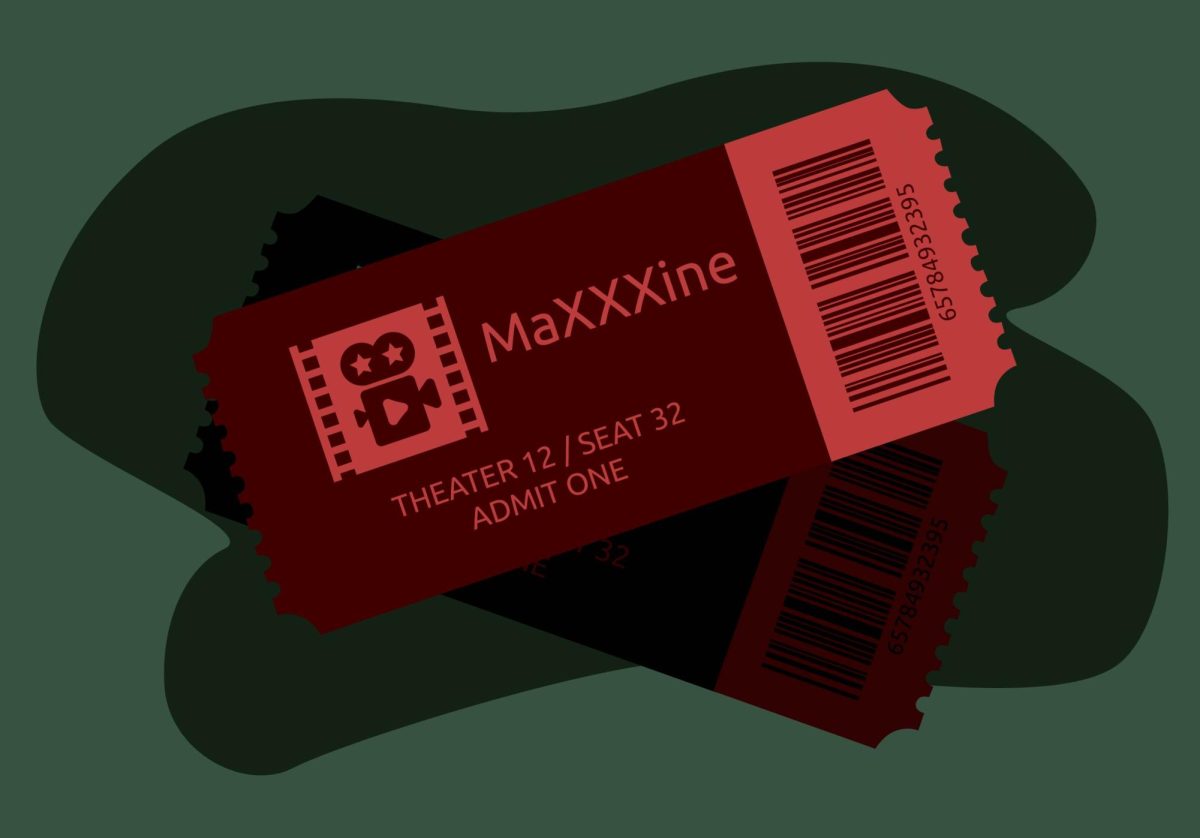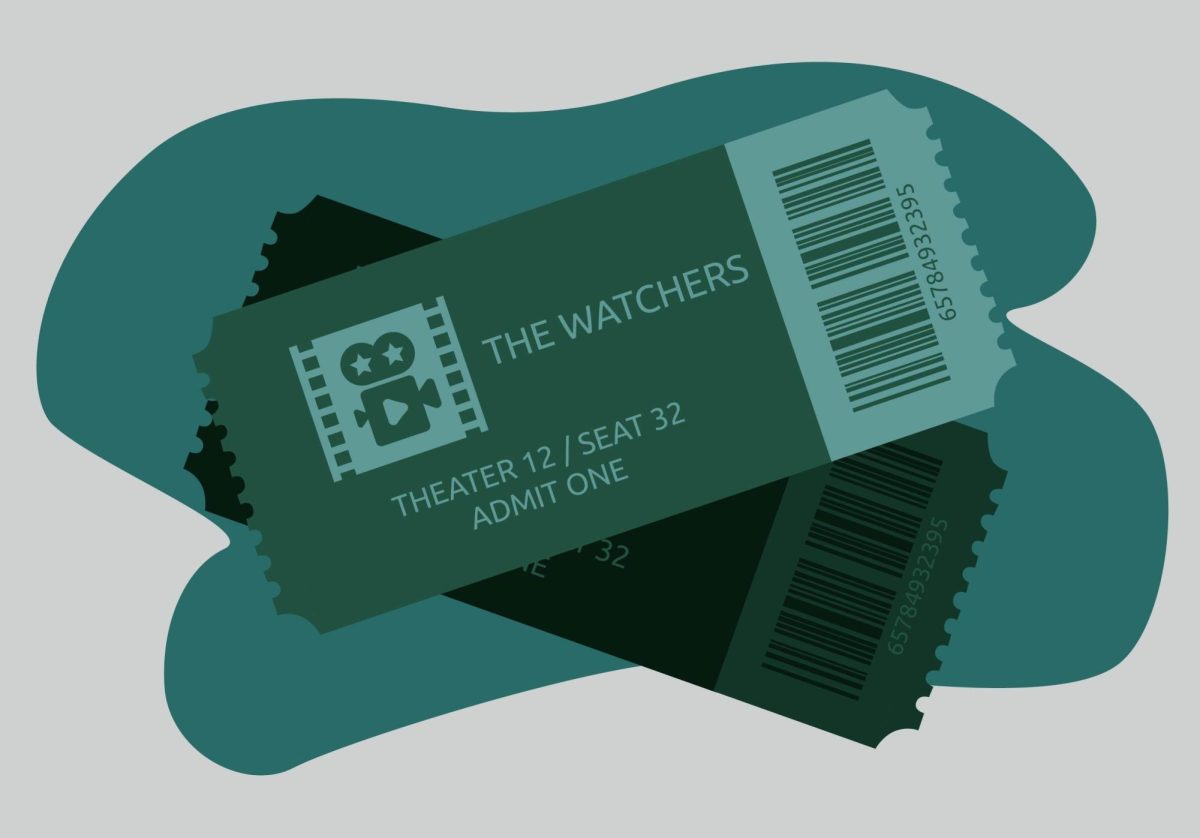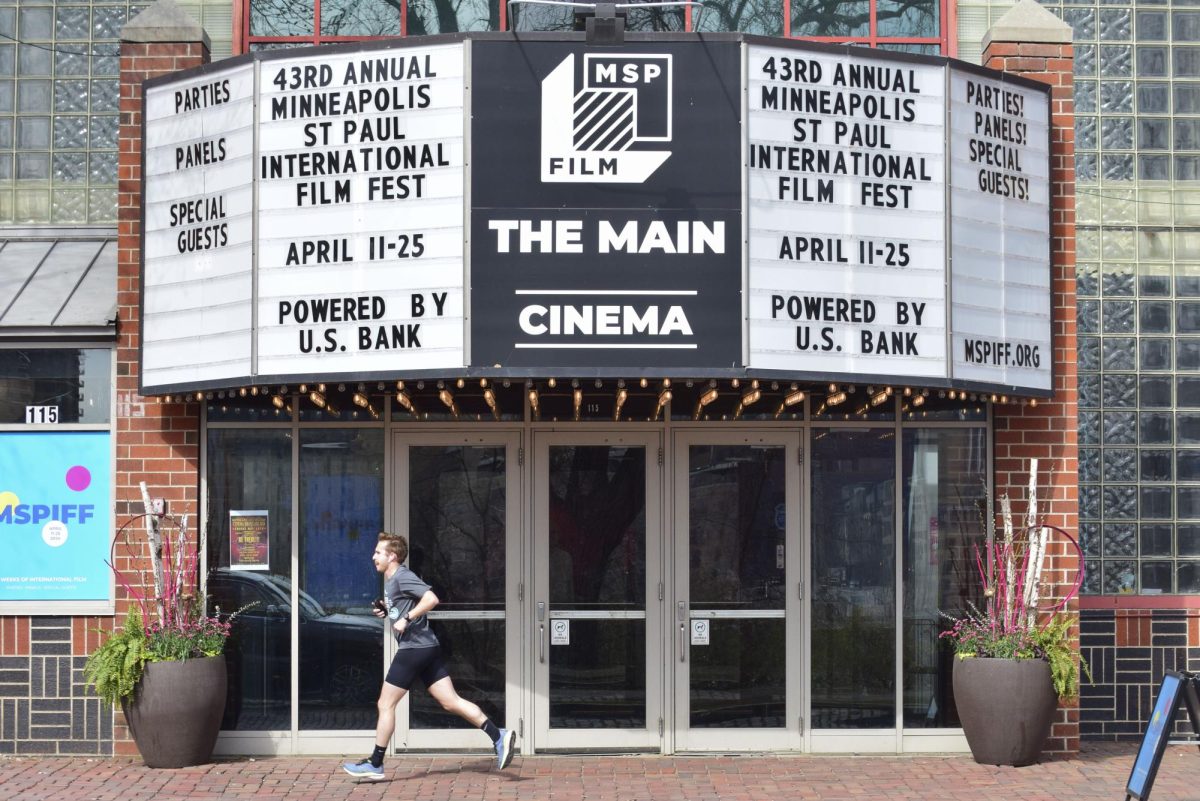For the first time since filming, the cast of Clint EastwoodâÄôs âÄúGran TorinoâÄù gathered together last Friday to talk about their Hollywood experiences and take questions about the film from the sizable audience that had gathered in Willey Hall . âÄúA substantial number of actors in Gran Torino are local,âÄù said Dr. Louisa Schein from Rutgers, who moderated. This homecoming was special not just for the actors but for the community they represented. The story of âÄúGran TorinoâÄù is about an old, bigoted man named Walt, played by Eastwood, living by himself, alienated from his family. When a Hmong family moves next door, Walt, who is at first rude, is forced to overcome his prejudices and confront the issues the family faces with a Hmong gang. Bee Vang and Ahney Her , who played the stars of the show, Tao and Sue, were present along with Doua Moua and Elvis Thao (gang members), Chee Thao (the feisty grandma who spoke only Hmong) and Cedric Lee (one of the filmâÄôs cultural consultants). Aside from Moua, who admittedly had worked in acting before, this was the first break for everyone else on the panel. Gran TorinoâÄôs screenwriter, Nick Schenk , is a Minneapolis writer who wrote the script while working odd jobs around the city . Much of the movie is based upon his experiences with people he knows from the Hmong community in St. Paul and the greater metro. The script has been highly praised, winning âÄúBest Screenplay of 2008âÄù from the National Board of Review. Oddly enough, a year prior Minnesotan Diablo Cody won an Oscar for âÄúBest Original ScreenplayâÄù for âÄúJuno.âÄù The actors talked about their experiences with Eastwood in a fond manner. âÄúClint directed you, but he really let you flow,âÄù said Elvis Thao, in a sentiment that was echoed by many of the other actors. Eastwood, at 79-years-old this May, is a veteran of cinema who has starred in a plethora of films while directing over 30. Ahney Her appeared concerned about EastwoodâÄôs age, as was Chee Thao, who admitted she thought he was an old servant before shooting began. âÄúGrandmaâÄù Chee Thao had a good story that brought up a side of Eastwood that isnâÄôt often seen: After the filming, she was so sad it was over that she started to cry, and Eastwood joined in. MouaâÄôs experience was a bit more classic Eastwood; during the scene in which Moua wielded a gun, Eastwood noticed Moua hadnâÄôt had much experience holding a gun and said simply to Moua, âÄúHold it straight and hold it firm.âÄù Gun lessons from Dirty Harry himself. The actors spoke warmly of their experiences on the set, sharing stories about filming and bonding with one another. âÄúWe had lots of time to hang out, so we built a family out of it,âÄù mentioned Lee. One of the most important aspects of âÄúGran TorinoâÄù was the questions brought up by its portrayal of Hmong customs and culture. “Gran Torino” was one of the first portrayals of Hmong culture in the American mainstream, and some in the audience believed that they were not accurately or fairly represented. Elvis Thao acknowledged the differences but explained that the cultural inaccuracies were at some points dramatized to give a more powerful effect and clear message to people unfamiliar with the Hmong culture. Vang pointed out that, at the end of the day, the decision was EastwoodâÄôs. Many hoped that the way the film dealt with cultural differences would teach a lesson that will impact Hmong culture off the screen. âÄúThe story is about both sides being wrong. It is about the grandma and about Walt, who both had unhealthy views about each other that were resolved in the end,âÄù explained Lee. Wameng Moua, editor of âÄúHmong Today,âÄù a local Hmong Newspaper, who attended the panel, said that the movie âÄúhadnâÄôt revolutionized the way that Hmong people live.âÄù Instead, Moua said the impact of the movie has been more on the people outside of the Hmong culture. âÄúPeople do know who the Hmong people are now, [the movie] has brought Hmong people into the mainstream,âÄù Moua said.
Daily Email Edition
Get MN Daily NEWS delivered to your inbox Monday through Friday!

Published July 25, 2024

Published July 25, 2024

Published July 25, 2024
Trending
Hmong stars among us
Local stars from “Gran Torino” give University students the inside scoop.
Image by Chris Roberts
Published February 26, 2009
Leave a Comment














